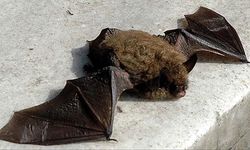Astronauts are increasingly at risk of contracting diseases that can result from long-term space missions. Sunita Williams and Barry Wilmore, who are also under psychologically difficult conditions, sleep in sleeping bags due to lack of capacity.
8-DAY MISSION TURNED INTO 8 MONTHS
NASA astronauts Sunita Williams and Barry Wilmore are stranded on the International Space Station with no official return date.
Boeing's malfunctioning Starliner shuttle turned what was expected to be an eight-day mission into a potentially eight-month mission of high stress and uncertainty.
STRESS AND HEALTH RISKS
Astronauts reportedly live in conditions such as lack of proper sleep, increased psychological stress and increased health risks.
However, despite all this, NASA officials claimed at a press conference that astronauts are very satisfied with this situation.
BURDEN ON THEIR BODIES
Every day astronauts spend up there puts more strain on their bodies, with microgravity and space radiation worsening their health.
MALFUNCTION ON THE STARLINER SHUTTLE
The astronauts were only supposed to stay on the International Space Station (ISS) for eight days when they were launched aboard Boeing's Starliner spacecraft.
But due to a problem with the vehicle's propulsion system, it is not safe to detach them from the station and bring them home.
NASA'S DILEMMA
Officials are currently debating whether to send Williams and Wilmore home on the malfunctioning Starliner or on SpaceX's Crew Dragon spacecraft, scheduled for launch in September.Choosing SpaceX would mean the astronauts would remain in space until February 2025, extending their mission to eight months.
SIX PRIVATE SLEEPING ROOMS
An unexpectedly long stay on the station will test the astronauts' patience, especially when it comes to their sleep patterns.
The International Space Station has only six private sleeping quarters, but there were already seven astronauts on board when Williams and Wilmore arrived.
This means that three astronauts will be deprived of proper sleeping arrangements.
THEY CAN'T WASH THEIR HAIR
Two of the astronauts are sleeping in less advanced sleeping quarters called Crew Alternative Sleeping Accommodations (CASA).
Sunita Williams also expressed some discomfort over the lack of showers in an interview on August 8.
Astronauts can only wash their hair twice a week.
Small inconveniences like these can cause distress for astronauts who are in space for long periods of time, and can even lead to psychological problems.
“THE THIRD QUARTER PHENOMENON”
On simulated space missions, some experience the “third quarter phenomenon”.
Astronauts experience a drop in motivation when they realize that the time left in their current situation is equal to the time they have lived before.
This can make them feel irritable, nervous and unmotivated.
HOW WILL THEIR BODIES BE AFFECTED?
NASA officials say that despite all these challenges, Williams and Wilmore are having a great time up there - for now.
But even when astronauts try to look brave, their bodies are affected by the harsh conditions of space missions.
LONG MISSIONS CAN CAUSE DISEASES
Numerous studies have shown that prolonged stays in space can lead to loss of bone density, muscle atrophy, intense radiation exposure, vision problems and other major health problems.
Eight months will not be the longest time an astronaut has spent on the International Space Station.
But Williams and Wilmore are at increasing risk of developing cancer, osteoporosis and other diseases that can result from long-term space missions.










